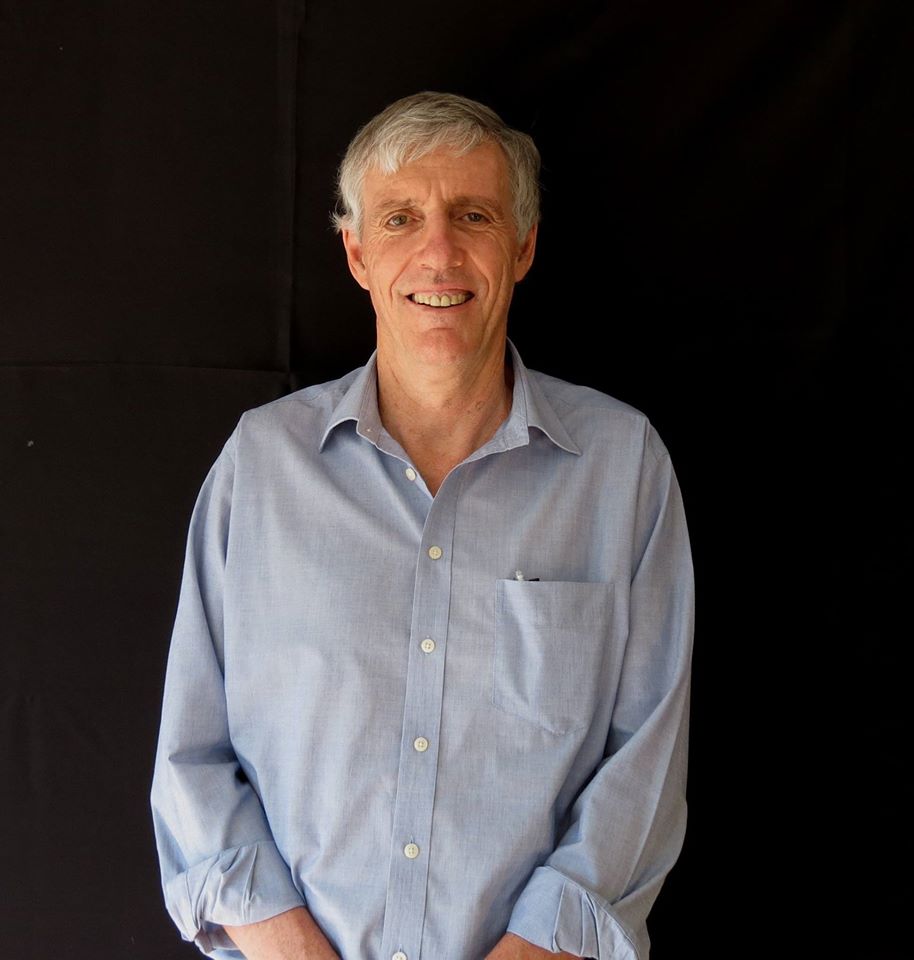“Course he isn’t safe. But he’s good.”
So said Mr. Beaver to Lucy in C.S. Lewis' classic, The Lion, The Witch and the Wardrobe.
I have the joy of practicing group spiritual direction twice a month in a prison. This practice is teaching me many things about following Jesus and about sharing Jesus with others.
This past Saturday, Jesse, a prisoner new to our prayer practices, shared that his experience of Jesus is still so new. He confessed he is just beginning to open himself to God, trying to determine if it’s safe to approach God further. I chuckled some about this and decided to be honest with him. “No, Jesse,” I said, “Approaching God is not safe. It’ll wreck your life.”
Jesus asks us, “Can you drink the cup I am going to drink?” As I mentioned last month, Jesus offers us a nice, hot cup of die-to-yourself. Why would anyone ever want to imbibe such a drink?
The cup Jesus offers us is the living water of transformation, of death and resurrection. It’s a drink of our baptismal waters. This strong drink is an acquired taste for most of us. It takes us time to learn how to regularly drink deeply of Jesus, the living water who is severe yet also liberating, sacrificial while healing, dangerous yet good.
If you are given grace to desire this drink at all, the question then remains: how do I acquire more of a taste for God? If I’m honest, I’m scared of taking more of God into myself. I don’t know what he wants from me. How do I learn to want to surrender more of myself to God?
——————-
I do most of the cooking in our home. I prefer strongly flavored foods, the heat of peppers, the intensity of garlic and onion. The trouble is remembering that my family naturally enjoys milder flavors. Unwittingly, I’m changing their palate—slowly, meal by meal. Without working hard at it, I’m re-defining their tastes. My oldest son has recently taken to spicy mustard on his bratwurst. He’s also enjoying little dabs of the jalapeño jelly I canned a few years ago. My younger son now eats the salads I prepare, and my wife prefers her coffee black—if it’s from the fancy beans I buy.
Just by being myself, by being a person interested in certain foods, films, and books, someone who delights in the camping and canoeing we did this past summer—just by a kind of osmosis I am shaping the interests and desires of my children and spouse.
This is also the gist of what I offer as a spiritual director, a kind of Spirit-led osmosis. What matters more than the words I say to someone in spiritual direction is my internal contemplative posture. The greatest gift I can offer someone in direction is the way I sit in the presence of God with that person, how I share time and space with that person in and through the Holy Spirit.
It’s vital to unpack that word “share” here. I do not arrive at a session of spiritual direction to share God with someone as a performance or monologue. Sharing is two-way. It’s reciprocal. I can only be effective as a facilitator of a spiritual conversation if the directee has arrived open and willing to share the God that is already inside of herself. And that is the point: we join together to prayerfully discover the God who is already moving, breathing, and loving in and through us. Jesus has always been near. It’s just that we have yet to acknowledge him.
No doubt over the years some have left a session of direction with me unimpressed and sad to have wasted an hour. Perhaps I wasn’t the right fit for that person as a director, or perhaps she was not ready for direction anyway. Perhaps she didn’t know how to be weak.
The only pre-requisite for spiritual direction and growth is some experience of humiliation, even a minor sense of failure. I first sought direction in the middle of a very public position as the worship leader for a small Christian college. I was supposed to be the conduit of God for 1200 voluntarily assembled students. I sought spiritual direction when I finally accepted my inner emptiness. I had grown so tired of naming Jesus for everyone but myself. I had become a wreck. I was spiritually poor and needed help.
The group of men who choose to meet with us in the prison come broken, open, humble, and willing. One winter when we had trouble getting to the prison due to a massive snow dump, G, one of the most thoughtful and well-spoken human beings I’ve ever met, said, “You guys would come here on a sleigh. I don’t understand why you all are working so hard to get in here when we are working so hard to get out.” We told G, and we continue to remind all the men that we keep coming to the prison because of their holy openness to God. Their vulnerability means that we see Jesus in the lives of these men in ways we don’t see him anywhere else. These men have been drinking Jesus’ cup of die-to-yourself. They have been pushed to rock-bottom, yet in their humility they are each being transformed into something stunning.
My service as a spiritual director has led me to a focus on prisoners and also pastors. I am attempting to make connections between the two. I want pastors to come into the prison to pray with us. But this is not traditional prison ministry where we arrive to offer the men access to God. Instead, we go to the prison to see Jesus as he already is in the prison. It’s the witness of the Spirit moving among the prisoners that I’m so excited to share with the pastors. In the prison, practicing group spiritual direction together, we share in the eating and drinking deeply of Jesus. How will an experience of sharing God with the prisoners, the least of these, the moral lepers of our society—how might these pastors be changed in ways that transform the scope of their parish work?
As you listen and pray through my conversation with Trevor Hudson, you will hear us sharing deeply of God with each other, deep crying unto deep. I invite you to join us in drinking this cup of Christ to remember your baptism, to know him, the power of resurrection, the fellowship of his sufferings, that you and I might be conformed unto his death.
Josh











